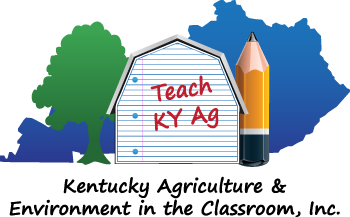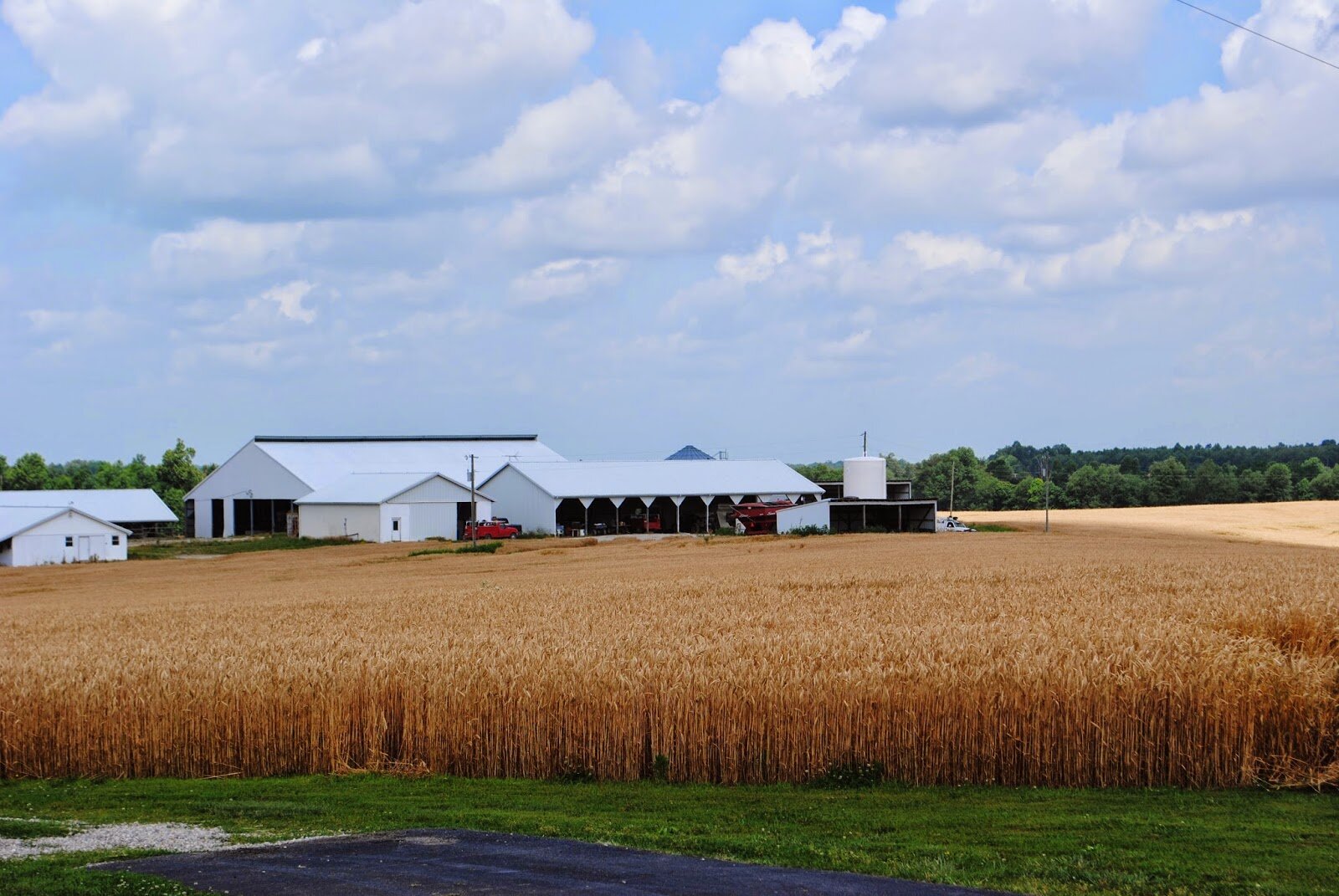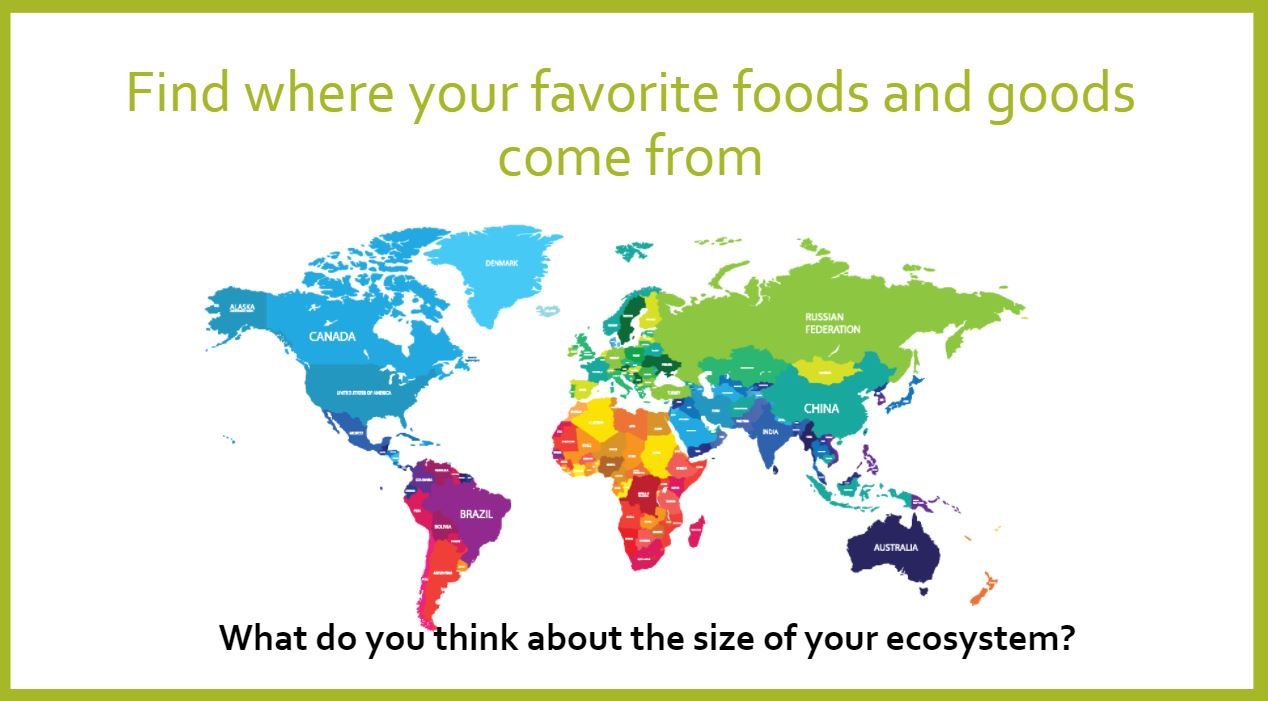When we hear the term “ecosystem,” we usually think of oceans, forests, or desert ecosystems. But what about the farm as an ecosystem? An ecosystem is a group of organisms and their physical environment in which they interact and exchange energy. The difference between the farm ecosystem and other ecosystems is that humans control many of the interactions in the farm ecosystem to ensure they are producing food to eat or sell. Therefore, when parts of the farm ecosystem change or are out of balance, the farm is not producing food.
Kentucky’s climate, topography, native organisms, and natural resource availability creates unique, regional farm ecosystems that give farmers a comparative advantage in producing certain crops and livestock. Specialization in production then provides many trade opportunities. That was true when early settlers decided what to grow, just as it is today.
Realizing the importance of healthy natural resources, farmers care for their ecosystem. They work to improve soil conditions, reduce soil erosion, protect water quality, and enhance habitats for their animals.
Grade Level: 3-5 & Secondary CTE
Purpose:
Students will:
Explain how a farm is an ecosystem.
Identify the parts of the farm ecosystem and how they interact and depend on one another.
Identify the producers and consumers in a farm ecosystem.
Model the movement of energy and matter within a farm ecosystem.
Learn how changes affect the farm ecosystem and the availability of food.
Identify the natural resources in a farm ecosystem and ways to protect them.
Explain how Kentucky’s natural resources, topography, and climate impacted human settlement and agricultural products.
Identify regions in Kentucky that provide farmers a comparative advantage and encourage specialization.
Understand the size of their ecosystem.
Lessons & Activities
Materials
“The Farm as an Ecosystem” Digital Presentations (Google Drive)
Additional materials are listed with each activity above.
Reading List
Brother Eagle, Sister Sky (Susan Jeffers)
Speech by Chief Seattle in the 1850s (“All things are connected like the blood that unites us. We did not weave the web of life, we are merely a strand in it. Whatever we do to the web, we do to ourselves.”) - Lexile Level 920LFarming (Gail Gibbons)
Each season brings specific chores, crops, and food. Farmers cope with the elements and forces of nature. - Lexile Level AD480LLife in a Bucket of Soil (Alvin & Virginia Silverstein)
Ants, worms, snails, etc., and how they live and their effect on the soil. - Grade level 3-8Magic School Bus Food Chain Frenzy (Anne Capeci)
Chapter book about Arnold’s adventure through an ecosystem and food chain. - Lexile Level 610LMcBroom’s Wonderful One Acre Farm (Sid Fleishman)
McBroom thought he was cheated in a deal, but then the bottom of his muddy little pond dried up, leaving an acre of rich soil. The seeds grew into full-grown plants, and nickels grew into quarters. - Lexile Level 630LWhat are Food Chains and Webs? (Bobbie Kalman)
Food chains link the sun, plants, and animals within various ecosystems to help them survive. - Lexile Level NC940LPass the Energy Please (Barbara Shaw McKinney)
Learn the basics of the food chain and the transfer of energy with an upbeat rhyming story. - Lexile Level 1010LAsk secondary students to find articles that show disruptions to farm ecosystems and have them explain how farmers or agriculture professionals are trying to manage the situation. A great source is www.kyfoodandfarm.info.
Commissioned by the Kentucky Department of Agriculture in 2005. Updated by Kentucky Agriculture and Environment in the Classroom in 2017 & 2021/2022.
Module 4 - My Kentucky Home Provides What I Need - Created by Jennifer Elwell, KyAEC
Kentucky Academic Standards
SCIENCE
3-LS4-3
3-LS4-4
4-ESS2-1
5-PS3-1
5-LS2-1
5-ESS3-1
MS-LS2-1
MS-LS2-2
MS-LS2-3
MS-LS1-6
SOCIAL STUDIES
4.E.IC.1
4.E.KE.1
4.E.ST.1
5.G.GR.1
5.E.ST.1
KOSSA OCCUPATIONAL SKILLS
Agriculture
Foods
Environment
Family & Consumer Sciences








